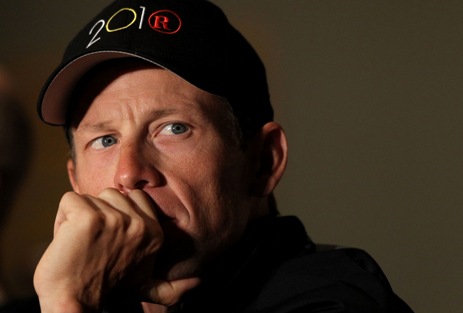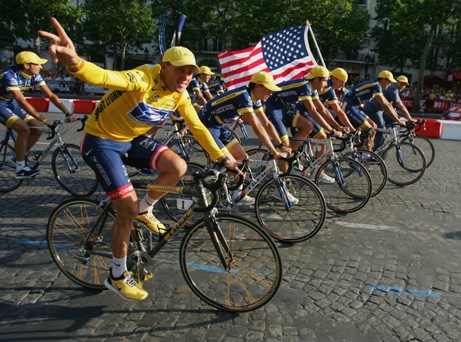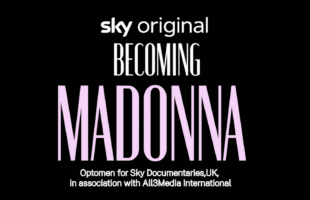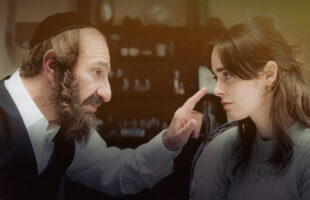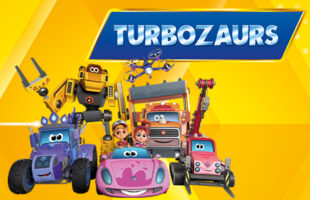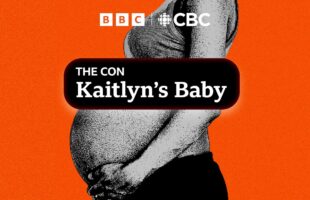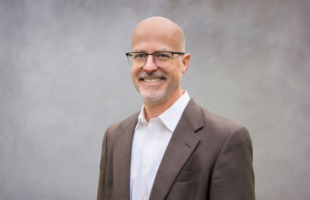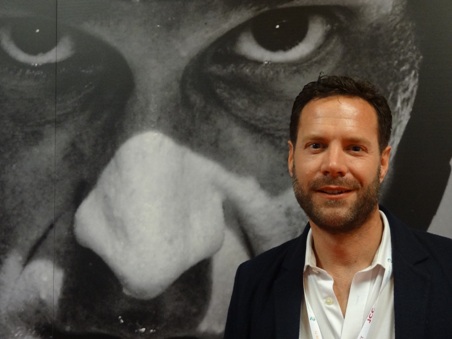

Director Alex Holmes
Q: King of Cheats (the title) has a somewhat antagonistic tone to it. Why this title?
A: The first thing is that this is a working title, but I think the idea behind King of Cheats is that Lance rode in an era when doping and taking performance enhancing drugs in cycling was very widespread. But no one did it to quite the same degree or with quite the same success that he did. In a way there’s something also celebratory about King of Cheats – he did it better than anybody else, you know, he was the most successful cheat that there was.
But our show isn’t just about performance enhancing drugs or even really just about cycling – it’s about so much more than that. When ABC made their current affairs show, The World According To Lance, which was one of the programmes broke the story in the first place; I think they did a great job with establishing the facts of Lance’s drug taking and his cheating. What I think the role of this film is, is to go beyond that, to go a bit deeper into Lance’s character, to look at the bigger story – one that perhaps takes us right back to the early days because Lance wasn’t always a drug cheat. You know once he was a school boy, like many of us have been who dreamt of being a great sports hero and wanting to win the greatest endurance race in the world. We’re looking to tell the story of how he made his first impact with performance enhancing drugs. And really, what we’re interested in is what the effect of having a secret like that is – how it kind of hollows out a character, how it changes and warps their personality; and how this led to him basically destroying other people and warping his own relationships with people.
And we tell it very much from the perspective of his inner circle, his inner team because in a way when you have a secret, it’s the people who are closest to you that are the most dangerous. And in a way the two cyclists who were his closest compatriots on the team were the people who eventually brought him down – Tyler Hamilton and Floyd Landis. That team of cyclist was such a tight-knit group but look at how those relationships break and dissolve over time. That is really what the story of the film is.
Q: How much access do you have to this people you talked about? The people on the inside, plus Lance Armstrong himself?
A: We are fortunate as a featured documentary to be standing on the shoulders of a lot of work that’s been done by Quentin McDermott who produced the original show for Four Corners. He has developed a lot of the relationships with a lot of the key people over many years actually. So those relationships are very established and we have access to those people inside Lance’s world. We’ve gone beyond that and we have on our team now someone who’s a chief sports writer at Sports Illustrated who’s been following the world of cycling for years called Selena Roberts. So we’re adding to our inside list of characters who can tell us the inside story.
When it comes to Lance himself, we’re approaching him, we’ve made a proposal to him to take part in our film. We’re waiting to hear back on that. I think it’s clear that whatever his ambitions for the Oprah interview, perhaps it didn’t quite have the effect of what he hoped it would do of clearing his name and clearing the air and allowing him to move on. In a way, now that we can see that in retrospect, perhaps he rather deepened his troubles by what he said on the Oprah interview because he didn’t really come clean – it was at best a partial admission. And it raised as many questions as it answered. So I think there is still a place for Lance to come forward and really tell the full story. Whether he chooses to do that with us or not; if he does that will be great. But if he doesn’t we can also make a great film. One of the models for this production is the feature Senna about Ayrton Senna. It was made by Working Title and released by Universal, it was one of the biggest grossing documentaries ever released and that was about Ayrton Senna who was dead at the time when the film was made. But yet Ayrton Senna was so present in the film because they really mined the archive in order to excavate his character and discover things about him that haven’t been shown to the world before. Sports coverage produces huge amounts of footage – it’s covered in every angle and sports personalities are filmed at every opportunity. But it’s only really ever turned into one sort of coverage – it’s yesterday’s news and passes very quickly. But if you have time to go back and revisit that footage and really focus on it, drill down into it and ask yourself the questions: ‘What is really going on here?’ Especially when you have the knowledge and the hindsight provided by all the other interviews that you have got. You see the footage in a different light and actually you find that it illustrates different things than what people thought at that time. So we can add to the material, construct the story and cut it more like a drama than a documentary. Using the archive footage, we’ll be able to tell the story because so much of it was in fact filmed.
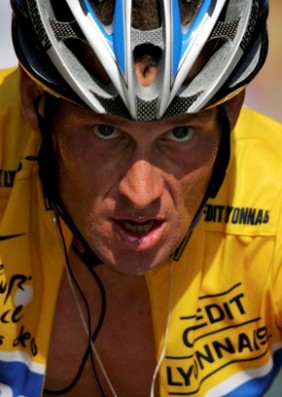
A: My background has been in feature films for the last four or five years. I think that to really explore the full depth of this story, you have to look at a dramatic narrative – Lance as a character and you know, his story has a huge character arc. He goes from this innocent young boy to being this hollowed out, broken man. He may well rise again from the ashes – a man of incredible resources! But it’s an arc of a tragic hero in a way, and in a way that’s what I mean when I talk about drama is that sense of the grand scale of the narrative of following a character through these traumatic changes. And also, looking at what happens to the relationships, studying how that impacts on the relationships with the people closest to him – how it corrodes the relationships, creates antagonism within the groups. That’s the story we want to tell.
Q: How far back into his life do you plan to go?
A: Oh, right back. I’m interested in thinking about what was Lance like before he took his first performance enhancing drug. Where did his ambition come from, what drove him? One of the interesting things that came out of our early research that hasn’t really been explored is that American cycling changed radically in 1984, which was the year of the Olympics and up until that year, the U.S. cycling team hasn’t won any medals at the Olympics since 1912 – they just haven’t been a presence in cycling at all. A couple of people at the head of U.S. cycling set out to change that and they brought on a Polish coach who had defected from Eastern Europe, and he transformed the way cycling was approached. In fact back in 1984, they were blood doping – they were actually substituting their own blood with other people’s blood before they raced and there was a big controversy about it. Amazingly enough it wasn’t against the rules back then but there was a big controversy about it. But it just shows how the success of U.S. cycling was really based on blood doping right from the start. And back then, Lance was a 13-year-old boy watching the Olympics for the first time as an aspiring athlete and he saw those men win those medals and really creating a huge story for his country in a sport that he was interested in. Speaking on my part, I have a 16-year-old son who is a keen rower and you know, he watches the Olympics and he sees these British rowers winning medals at the Olympics and that‘s what he wants to be. So you can imagine the effect on a 13-year-old Lance thinking ‘I want to be there, I want to be a champion like those champions.’ And so really it’s about he goes from that innocent childhood desire to be a sports hero, to becoming this kind of dark figure who is weighed down by the weight of a secret he had to keep almost his entire adult life.
Q: Between this being called an exposé or a possible mouthpiece for Lance Armstrong, where do you think this documentary falls under?
A: I think it’s certainly not an exposé. I think the exposé’s already happened. But I think it would be a revealing look at a character and a set of relationships. There’s going to be passion in this film, we’re going to feel for these characters but the good characters and the bad characters; the heroes and their opponents. So there will be passion and it will make you feel anger and emotion but I don’t think it’s an exposé. And it certainly isn’t one that is a promotional film for Lance Armstrong. It’s trying to get to the truth behind it and the truth is never gotten through exposé. One of the ways you can approach this is to say it’s the first draft of history. I’m sure this is such a big story in sport that this story will be examined again and again over the years and inevitably more information always comes to light. But this is an attempt to step back for the first time and say ‘What was really going on here? What were the motivations of the people involved? How did it change their characters, how did things change over time and what was the end result?’
Q: What’s the connection with ABC Australia and eventually having ABC Commercial distribute this?
A: The story of the making of this was that Quentin McDermott, who is a reporter on Four Corners, had been following this story for a long time and has been planning to prepare a film about Lance. I simultaneously but completely independently had an interest in Lance – I had read all his books and I thought he was a really interesting character. But I also always thought there was something about him – the full truth wasn’t known. There were so many rumours swirling around him and my background as a journalist, and one knows as a journalist there is often no smoke going that far. Very occasionally yes but almost always never. So I knew that there was some story there. But I wasn’t particularly investigating it. I had followed it. It just happens that Quentin and I used to work together 16, 17 years ago and our paths had gone different ways. He had gone on to be a journalist in Australia – a reporter on Four Corners and I had gone on to make dramas and then feature films. We just so happened to coincide when he was in the final stages of preparing his Lance documentary. He was travelling through London and I happened to be there. He talked about the story he was making and I think it surprised him by how much I knew just as a regular punter who happened to follow the story. So when the ABC realised that they had more material than they could possibly fit into a current affairs show, that there were deeper themes they could examine here. They were looking for someone to think ‘How do we realise this is a deeper story, a more profound character-driven story?’ So Quentin thought of our conversation and contacted me. And that’s how we came together.
What’s really exciting for me as a filmmaker, beyond the creativity and the story is that this is a really rare opportunity because what the ABC has done is they have also seen the potential for this. They were the people who saw the potential for this right from the start before I even realised it. And they got on board very early and decided to try and make this thing happen. And actually with feature documentaries, they are often very difficult to finance and to fund. But the ABC realised that actually this was a story for which there was an appetite sooner rather than later. People wanted to know more about this story and so they took the decision to come on board and fully fund the documentary, which is a fantastic example to other people as to if you believe in something, you can make it happen. As a result, we were able to get into production with really quite a complex and sophisticated film much sooner than we might be able to otherwise. That means that hopefully we will have a cut ready for around September, get theatrical distribution for it either in the fall, or will hold it back and maybe submit it to Sundance and maybe premiere it there.
But one of the things we’re also interested in is making it move through the windows of distribution quite quickly so that we don’t have it going around festivals for a year and then in theatrical distribution for another year and eventually washes up on television. I think there’s an opportunity here to have it in a festival maybe or find a platform to premiere it then to move into distribution quite quickly to have a short window for distribution and then very quickly to move it into those other windows like VOD and television. I think that in that way you increase the impact of the film because each window benefits from the publicity and the tension that’s been brought by the previous windows. So that’s our plan and I think it’s a very good plan that ABC Australia developed.
Q: Do you think this will travel the documentary circuits and festivals?
A: I think not actually because there are certain sort of films that work well in festivals; I think could work well in a festival but we want to make a film with the widest possible audience and I think sometimes festival films have a narrower focus for more niche audiences whereas I think this film actually has a broad appeal – it’s themes are so large and so big, and this is a story that has garnered such wide interests and I think it’s our responsibility to put it in front of the biggest audience. There are documentaries that are festival films that are arthouse films in the feature world, and this is more like a blockbuster. This is a film of wide appeal that should garner big audiences. And that’s our ambition for it. We want to make it accessible and exciting and thrilling, to engage people’s emotions. We’re not looking to make a small, arthouse film that goes around the circuit. I love those films; other people will do them very well. This is a much punchier, more explosive, engaging and immersive experience.
Q: You mentioned you might have access to third-party content – archived footage?
A: If you are familiar with the film Senna, you will appreciate from that. The strength of the film is that they mined the archive of Formula One and the life of Ayrton Senna and find the gems that really showed his character and the character of the other racers and drivers of Formula One during that period in a different light. And our plan is to do the same. In fact we have the same archive team who worked on Senna and are now working on this film. We will cast our net as wide as possible in order to find all the necessary material in order to find those little moments that bring the story to life. It’s certainly true that we have access to some previously unseen footage, some private footage, footage provided to us from people within Lance’s inner circle; there are intimate moments as well as footage filmed for sports coverage. So there’s a whole mix of footage, different sources in there. My job as a filmmaker is to weld that all together to make it feel like a piece and make it all sit comfortably alongside each other. But it’s very exciting to have such a range of material available to us. On one hand, we have footage that was shot for IMAX – there was actually an IMAX film made of the Tour de France in one of the years Lance won it. The footage is amazing, it has scale like you can’t imagine. But on the other hand, we have footage shot on phone cameras and things like that. They both have a value and a place in the film and I think it’s more exciting as a result of combining all those different elements.
It’s interesting I was flipping though the MIP magazine yesterday and on every page there was something about 4K. Of course because we have theatrical ambition for this film, we will be mastering it in 4K. So it’s going to be available to any broadcasters who are up to speed with distributing in 4K.


